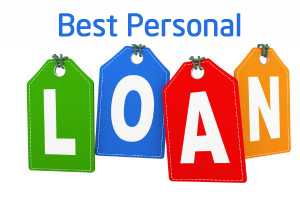Need to gut your 1970s-era kitchen? Planning an expensive wedding? Want to consolidate your high-interest-rate credit card debt into a single loan with a lower interest rate? A personal loan can be an important financial tool whenever you face big expenses.
But how exactly do you qualify for a personal loan? It’s all about building a good credit score and earning enough money so that you can pay your loan back on time.
“One of the most important factors in qualifying for a personal loan is your credit score and history,” says Xavier Epps, chief executive officer of Alexandria, Virginia-based XNE Financial Advising, LLC. “These factors help potential lenders decide if they believe you will honor the terms of your loan agreement. If your credit shows that you have a history of not repaying loans, then the potential lender is more likely to believe you won’t repay them.”
What Can You Use A Personal Loan For?
What is a personal loan and how can one benefit you?
People consider personal loans as a manageable way to reach their goals when paying for a big or unplanned expense. For example, maybe you’re planning a large wedding. A low-interest-rate personal loan can help you cover any upfront costs. Or maybe you need to furnish a newly purchased home and you’re feeling a little house poor after closing costs. A personal loan can then provide you the lump sum payment you need to fill your home’s living room and kitchen with new furniture.
You can also apply for a personal loan to pay off high-interest debts, such as credit cards. Say you have €/$10,000 in credit card debt. If you take out a €/$10,000 personal loan, you can immediately pay off that debt. Yes, you’ll have to pay back your €/$10,000 personal loan, but if it comes with a far lower interest rate and timely repayment plan. Therefore, you’ll end up paying less over time.
How Does A Personal Loan Work?
When you take out a personal loan, you’ll receive a single lump-sum payment. You can then spend those dollars however you want.
You have to pay back your loan, though, which you’ll do with regular monthly installments. Each month on your due date, you’ll send in your required payment until you pay off your loan. The terms for personal loans vary, but you might have 3 or 5 years of monthly payments until you pay off what you’ve borrowed.
You won’t just pay back your principal balance, though. Keep in mind that you’ll also have to pay interest. This is how lenders make their money. Your monthly payment is made up of your principal balance and your interest. The amount of interest depends on your interest rate. It’s important, then, to shop around for the personal loan that comes with the lowest interest rate.
It’s also important to consider lending fees. Some lenders charge origination fees – usually a percentage of what you’ve borrowed – when you take out a personal loan. This fee might be in the range of 1 to 5%. If you borrow $5,000, and your lender charges an origination fee of 5%, you’d pay $250. Make sure to do your research when shopping and feel comfortable with any additional fees that lenders may offer.
What Do You Need To Qualify For A Personal Loan?
Lenders will look at your financial health to determine if you qualify for a personal loan and at what interest rate. Fortunately, qualifying for these loans isn’t overly complicated.
Here’s a quick look at what you’ll need:
A Solid Credit Score
Lenders will pull your three-digit credit score. This number instantly tells them how well you’ve managed your credit and whether you have a history of paying your bills on time. If your credit score is low, lenders know that you have missed payments, high credit card debt or both in your past.
Lenders generally consider a credit score of 740 or higher to be excellent. You don’t need a credit score this high, though, to qualify for a personal loan. Lenders vary, but most want your score to be 640 or higher. This doesn’t mean you can’t qualify for a personal loan if yours is lower, but the lower your score, the higher your interest rate tends to be. And with a higher interest rate, you’ll pay more each month when repaying your loan.
A Solid Payment History
Lenders like lending money to borrowers who have a history of paying their bills on time each month. Because of this, lenders will pull your credit report from one or more of the three national credit bureaus – Experian™, Equifax® and TransUnion® – to look at your payment history.
Your credit reports list your open credit and loan accounts, and your payment history with them. If lenders see several late or missed payments, they’ll hesitate to approve you for a personal loan. And if they do approve you, they’ll charge a higher interest rate to make up for the risk they’re taking on.
Be careful, then, with payments. Late or missed monthly payments remain on your credit report for 7 years.
Nishank Khanna, chief marketing officer with New York City-based Clarify Capital, said that a history of missed payments is one of the most common reasons lenders reject a borrower’s application.
“Someone with black marks on their credit report due to missed payments or a defaulted account is going to have much greater difficulty securing a personal loan than someone with a clean report,” says Khanna. “A person with poor payment history is going to be seen as a higher risk and financial institutions seek to minimize lending risks.”
A High Enough Income
Lenders want to make sure you can afford your new monthly payment. Before approving you for a personal loan, then, they’ll look at how much money you bring in each month. If your monthly income stream is too low, you might struggle to qualify for a large enough personal loan to cover the big expense you are trying to pay.




